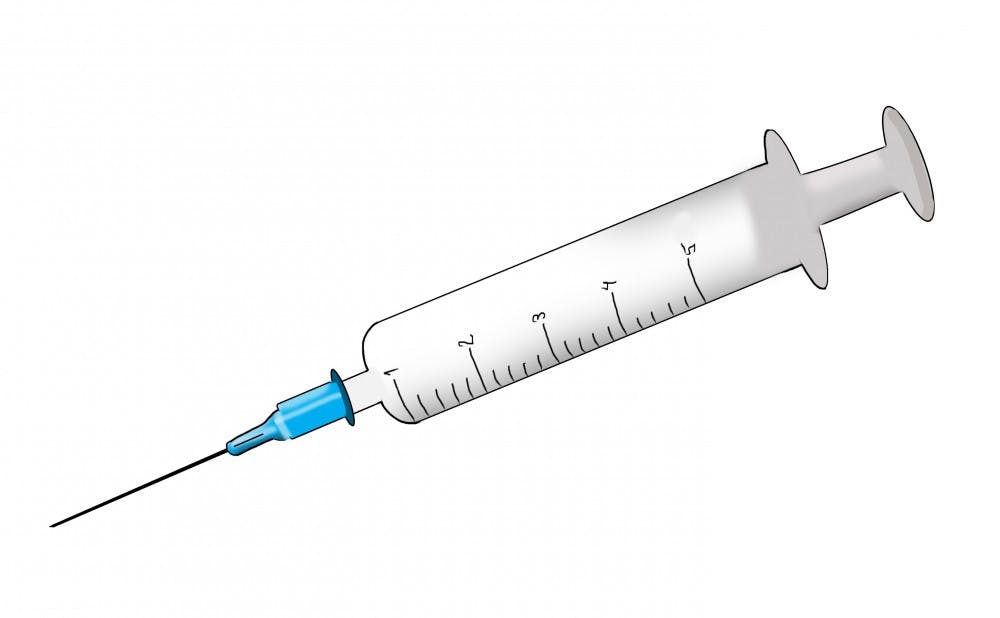Monday marked the start of clinical trials for a potential COVID-19 vaccine.
The Phase 1 trial took place at the Kaiser Permanente Washington Health Research Institute in Seattle. The first of 45 healthy volunteers ages 18 to 55 received the vaccine Mar. 16. An approved vaccination for SARS-CoV-2, known as COVID-19, does not currently exist.
Sallie Permar is a Duke professor member of the Duke Human Vaccine Institute. She talked to The Chronicle about some of the features of the new vaccine and how Duke is also contributing to vital COVID-19 research.
Although there are no labs at Duke dedicated to coronavirus research, there have been “a number of individuals, especially through the Human Vaccine Institute, that are able to leverage their area of expertise to fill in the gaps of the research that is needed,” Permar explained.
Some labs are studying the immune systems of individuals who have been infected with the coronavirus and survived.
“The immune cells of those individuals can be very telling about what types of responses that a vaccine should elicit,” Permar said.
She also noted that isolating the neutralizing antibodies—proteins that attack invading pathogens—made by individuals who were infected and survived can be extremely beneficial.
“Those antibodies can actually potentially form a countermeasure or product,” Permar explained. “You have a molecule that is able to neutralize the virus, and that can be potentially used either as a prophylactic, where you may provide it to individuals that would get some temporary immune protection through providing that antibody, or potentially could be used as a therapy even to infected individuals where their immune system is not able to contain the virus on its own.”
Permar also noted that Duke is teaming up with the California National Primate Research Center to develop animal models that would mimic the disease and help researchers understand why children appear to be more protected from the disease than elderly populations.
She touched on the difficulties of developing a coronavirus vaccine.
The vaccination relies on messenger RNA (mRNA), a molecule that is vital to synthesizing proteins in organisms. Once inserted into the body, the mRNA would act as the instructions for the production of proteins that are found on the surface of the SARS-Cov-2 virus. Hypothetically, the production of such proteins should lead to a defensive immune response, attuning the body’s response to future sightings of the virus.
Permar said that the speed at which a product can be developed by the mRNA vaccine is “remarkable.”
“It really gets the body’s cells to do the work that protein vaccines have to do along the manufacturing process,” she said.
Being able to rapidly amplify the desired sequence of mRNA is what helped the timeline of the vaccine move so quickly, Permar added. The virus genome was analyzed in January, and the vaccine was shipped for the start of trials in late February.
However, while the vaccine is moving, it’s hard to ignore certain key issues in its development.
“We’re still learning about the safety of those vaccines and the efficacy and durability of responses, which is going to be an important component for any pandemic that has the potential for coming back,” Permar said.
A primary ethical concern has to do with the lack of animal testing prior to human clinical trials, causing concerns from scientific ethicists.
“This is a brand new virus in humans, so certainly nobody had the [SARS-CoV-2] animal studies ready to go,” Permar said. “In fact, that’s some of the work that I’m working on proposing now.”
The National Institute of Allergy and Infectious Diseases gave an experimental vaccine to mice on the same day that recruitment began for human trials. The mice exhibited immune responses similar to those who were given a MERS-CoV vaccine, a related strand of the coronavirus.
Permar noted that animal studies are being “pursued in parallel” with early human safety studies, which is what drug development companies like Moderna are trying to do right now.
Get The Chronicle straight to your inbox
Sign up for our weekly newsletter. Cancel at any time.
Although vaccines normally take 15 to 20 years to fully develop, the coronavirus vaccine is on track to be released much sooner. Despite President Donald Trump’s requests for a vaccine to be prepared by the November election, experts don’t foresee the vaccine being ready before 18 months from now.
After small group and large group safety studies are performed, the vaccine must be proven to be “truly efficacious,” Permar said.
It’s also likely for vaccines to get held up in the midst of determining their effectiveness. Permar cited vaccines such as the Zika virus where there were not enough patients to continue testing the vaccine, leading to significant delays in production.
“Every new vaccine comes with some amount of risk,” she said. “You want to be sure that the risk comes along with the overwhelming benefit of being protected from the virus.”

Leah Boyd is a Pratt senior and a social chair of The Chronicle's 118th volume. She was previously editor-in-chief for Volume 117.

